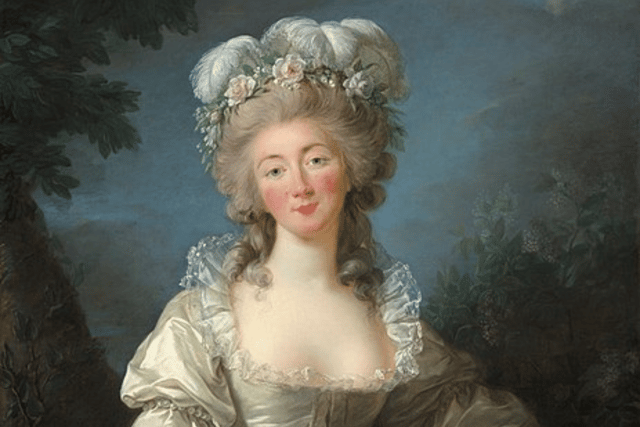Madame du Barry - the inspiration behind Johnny Depp’s opening night film at Cannes Film Festival 2023
People in this article
and live on Freeview channel 276
The opening night of Cannes Film Festival 2023 begins this evening, with the opening night film an eagerly anticipated return for Johnny Depp after his recent legal issues with former partner Amber Heard. “Jeanne du Barry” marks French director Maïwenn’s seventh feature film, with the director playing the titular Jeanne du Barry and Depp as Louis XV and centres on Madame du Barry, who uses her intelligence and allure to climb the social ladder. She becomes King Louis XV's favourite, they fall in love and against all propriety and etiquette, du Barry moves to Versailles, where her arrival scandalises the court.
Early reviews in France for the film have been positive so far, with Catherine Balle, writing for Le Parisien, gave the film 4.5 out of 5 stars writing that Maïwenn succeeds in a classic film but very contemporary and totally inhabited" and French newspaper Le Journal du Dimanche gave the film 4 out of 5 stars, writing: "The film strikes the heart with its tragic romanticism, lyricism and chiselled dialogues that convey a fierce modernity. Faced with the couple formed by Maïwenn and Johnny Depp, in osmosis, Benjamin Lavernhe recalls the extent of his talent."
Advertisement
Hide AdAdvertisement
Hide AdSo will the film be an accurate portrayal of Jeanne du Barry, or will it be another moment of “fictional history” - that being, characters being based on real life personalities yet their history revised for fictional purposes. Kind of like Pride and Prejudice and Zombies, but less tongue-in-cheek and not quite as much carnage. Given that Maïwenn has discussed that the reason for her creating the film was her love of Sofia Coppola’s film “Marie Antoinette” and, in particular, Asia Argento's performance as Madame du Barry, we would expect there to be some poetic licence during the film - but as close to history as possible.
So who was Jeanne du Barry? Peopleworld dusted off our history books to take a look at the life of Madame du Barry, and Louis XV’s infatuation with the last maîtresse-en-titre of King Louis XV of France.
Who was Madame du Barry?


Madame du Barry, whose birth name was Jeanne Bécu, was born on August 19, 1743, in Vaucouleurs, France and worked as a courtesan before entering the court of Versaille. She gained the favour of many due to her beauty and charm and after her introduction to the french court in 1768 by her then lover Jean du Barry (brother of the Comte du Barry, who would later become her husband), caught the eye of Louis XV in 1769, elevating her favour at court.
As the king's mistress, Madame du Barry enjoyed a lavish lifestyle, acquiring wealth and luxurious properties. She influenced Louis XV in matters of politics and appointments, though her influence was relatively limited compared to previous mistresses of the king. Despite facing initial opposition from the nobility due to her background as a commoner, she was eventually accepted into the court and gained the title of Countess.
Advertisement
Hide AdAdvertisement
Hide AdHowever, Madame du Barry's influence and position came to an end with the death of Louis XV in 1774. His successor, King Louis XVI, had her banished from court and sent to a convent. During the French Revolution, she faced significant danger due to her association with the monarchy. In 1793, she was arrested and ultimately executed by guillotine on December 8, 1793, during the Reign of Terror.
Did Madame du Barry know Marie Antoinette?
Though they belonged to different circles at the court, Madame du Barry and Marie Antoinette were familiar with one another. Madame du Barry became King Louis XV's mistress in 1769, while Marie Antoinette married the future King Louis XVI of France in 1770. Marie Antoinette arrived in France as a young teenager in 1770, joining the royal court at Versailles. At this time, Madame du Barry was still influential as the king's mistress.
Madame du Barry's influence waned after the death of Louis XV in 1774, and Marie Antoinette's own rise to power and influence came after that period. While both women played significant roles at the French court during the 18th century, their lives and positions were quite distinct. Marie Antoinette would go on to become Queen of France, while Madame du Barry's prominence declined.
Comment Guidelines
National World encourages reader discussion on our stories. User feedback, insights and back-and-forth exchanges add a rich layer of context to reporting. Please review our Community Guidelines before commenting.
